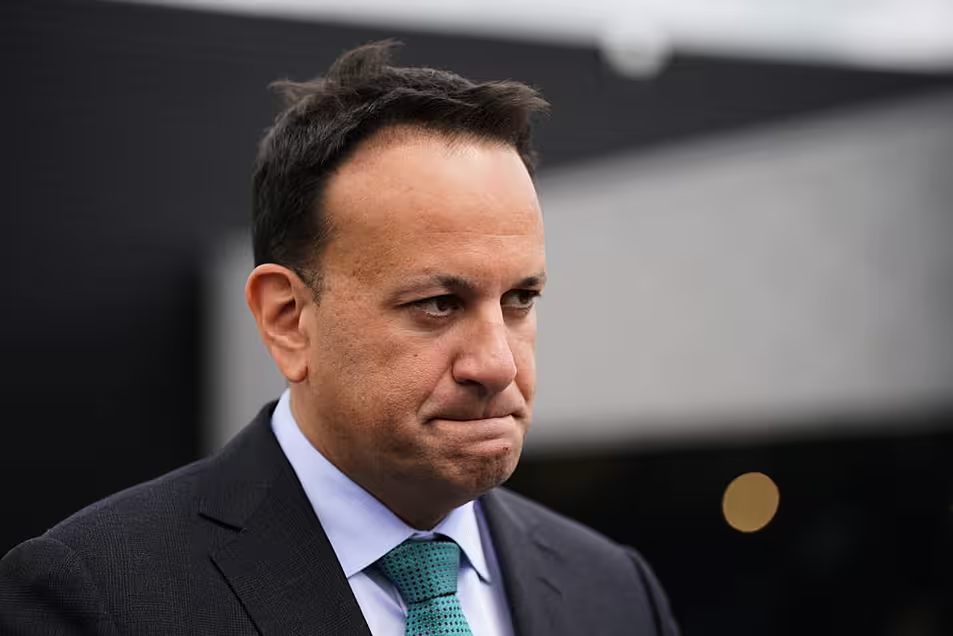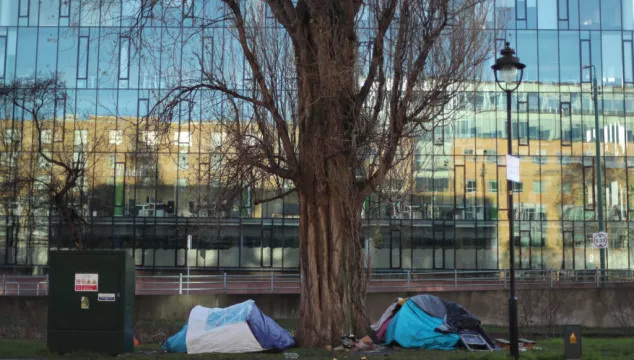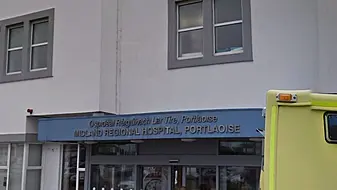One of the top officials in Europe’s leading human rights body has expressed concern about the severe lack of accommodation faced by people seeking international protection in Ireland and fears it was adding to “anti-refugee sentiment".
The Council of Europe’s Commissioner for Human Rights Duna Mijatović has written to the Taoiseach, Leo Varadkar, to raise concern about the challenges faced in providing adequate reception and accommodation for asylum seekers arriving in the Republic.
In a letter that was also addressed to the Minister for Integration, Roderic O’Gorman, and the Minister for Housing, Darragh O’Brien, Ms Mijatović said the situation given the wider housing crisis in Ireland could contribute to a growing anti-refugee sentiment which had already led to several worrying incidents.
Ms Mijatović noted that over 900 international protection applicants have been left in a situation of street homelessness over recent months.
In addition, the commissioner observed that families with children were often housed for extended periods in inadequate and overcrowded temporary accommodation.
Ms Mijatović has called on the Irish authorities to comprehensively review and address structural shortcomings of the international protection system.
The commissioner also said Ireland should develop a sustainable approach towards the accommodation of refugees and asylum seekers within its broader housing policy.
'Whole-of-government approach'
“The scale and complexity of the prevailing reception crisis calls for a whole-of-government approach,” she added.
Ms Mijatović said she highly appreciated the generous welcome that had been extended by Ireland to almost 80,000 refugees from Ukraine, of which some 60,000 had been provided with different forms of accommodation.
However, she said housing for international protection applicants had been inadequate since last summer with some being turned away due to a shortfall in accommodation.
Ms Mijatović said she was worried by the reported differences in the treatment of people fleeing war in Ukraine and those fleeing war and atrocities in other countries.
The commissioner said she was also concerned at the decision taken at the start of 2023 to only offer emergency accommodation to applicants with children which had resulted in over 900 refugees, including some who could be minors, left “in a situation of street homelessness.”
“While I am aware that this decision was taken in exceptional circumstances and with the intention of offering shelter to all applicants as soon as it became available, the exposure of often traumatised and vulnerable individuals to cold, rain, hunger and distress has serious consequences for their human rights, notably the right to health,” the commissioner said.
She claimed the treatment of such applicants could fall short of the minimum standards under Article 3 of the European Convention on Human Rights.
Ms Mijatović also noted a recent High Court decision that the failure to provide accommodation for an applicant from Afghanistan was unlawful and that efforts by the authorities to secure accommodation did not absolve the Government of its obligations.
She said giving the individual a voucher and a referral to private charities was “not an adequate response.”
In reply, the Taoiseach said Russia’s full-scale illegal invasion of Ukraine had resulted in an unprecedented number of people arriving in Ireland seeking international protection.
Mr Varadkar said temporary protection had been granted to 83,000 individuals from Ukraine which amounted to 1.6 per cent of the country’s population.
He said 20,500 other refugees were being accommodated by the International Protection Accommodation Service in May this year compared to 8,000 just 15 months ago.

Mr Varadkar said additional resources and new processes and structures had been put in place to deal with the issues that were arising “in what is an extremely challenging situation".
The Taoiseach said there had been particular difficulties in sourcing sufficient amounts of accommodation to meet the increased demand given the pre-existing housing shortage in Ireland.
However, he said a working group was focused on maximising the scale and pace of delivering accommodation for new applicants for international protection.
Mr Varadkar said the Government recognised that the current situation “falls short of what is required and is working tirelessly to deal with the problem".
While over 5,880 beds had been procured so far this year, the Taoiseach said it also had to find alternative accommodation for another 2,543 individuals who had been staying in hotels due to the start of the tourist season.
Despite such intensive efforts, he said demand had consistently outstripped supply with the IPAS being unable to offer accommodation to 199 people as of this week.
The actions of a minority do not speak for the majority of Irish citizens.
Mr Varadkar admitted the substantial number of new refugees arriving in Ireland had also had the unavoidable effect of delaying the Government’s plans to end the system of direct provision.
The Taoiseach stressed that communities across Ireland had demonstrated “great solidarity” with refugees over the past year and insisted it was only a small minority who sought to create division and engage in intimidation.
“The actions of a minority do not speak for the majority of Irish citizens,” he added.
However, he acknowledged that the Government needed to listen and communicate with local communities as new accommodation centres were opened.
Mr Varadkar said the Government was working “to develop a more effective method of sharing the necessary information.”







